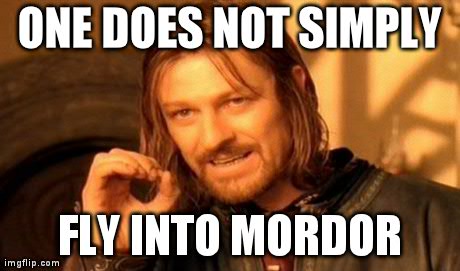I've recently come to the conclusion that there are three kinds of writers: storytellers, wordsmiths, and authors. I should probably define my terms a bit before moving on.
Storytellers, in my mind, are people who have a gift for enthralling other people with their stories. When I think of a storyteller, I think of Mo from Inkheart, a man so good at telling stories that he could make them a reality, drawing his listeners (quite literally) into the world of the story. These are the type of people who can just make up a ghost story around the campfire, or else take someone else's story and tell it in a new and interesting way. My dad often tells me about his literature teacher who could make even the most macho high school boys weep during a reading of "Snow White", just because he told the story so well.
| Storytelling...it's both a gift, and a curse. |
The Harry Potter books are a good example of this. They're incredibly entertaining to read (okay, books four and five were too long, but they were still entertaining in the end) and had a certain charm that drew me in from the first page of each of the seven books. But there are a fair number of plot holes (spoilers ahead, in case you somehow haven't read the books or watched the movies). For instance, why were three eleven-year-olds able to outwit the combined efforts of all their instructors in The Sorcerer's Stone (technically it's The Philosopher's Stone, but the British apparently don't think we Americans know what a philosopher is)? Why do the teachers at Hogwarts seem fine with constantly endangering their students? Why did Lily's sacrifice protect Harry, when James attempting to fight Voldemort off without a wand (to buy his wife and child time to escape) did nothing? And, you know, the Time Turner itself. Then this...
 |
| Wow...I never noticed this one before...that is pretty disturbing actually. |
Wordsmiths, on the other hand, are the opposite. These writers are far more analytical, focusing on the details of the story as well as the writing itself. When reading the work of a wordsmith, you'll find that the writing is beautiful, the grammar is nearly always perfect, that there are few, if any, fragments or run-on sentences, and that nearly every element of the plot fits perfectly together. Wordsmiths excel at creating intricate plots, worlds, and sentences, all of which are incredibly detailed. J.R.R. Tolkien is a good example of a wordsmith. As a matter of fact, many of the earlier novelists (such as Dickens and MacDonald) leaned towards being wordsmiths rather than storytellers.
The problem with wordsmiths is that they are often so caught up with making beautiful sentences and intricate plots that their stories have a tendency to come across as long-winded and dry, and it's often difficult for wordsmiths to enchant their readers and suck them into the story as quickly as a storyteller could. Part of this is due to a disconnect between the writer and his readers. For instance, Tolkien rewrote entire chapters because the phase of the moon was wrong, and he also had pages of dialogue that often focused on the mythology of the world rather than the story itself, and Melville spends an entire chapter describing how white Moby Dick is before launching into an analysis and defense of whaling (putting the story on hold for more than six chapters). These things were incredibly important to these two authors. Tolkien cared a great deal about the phase of the moon, as well as the detailed mythology of Middle Earth, and Melville cared a great deal about whaling as a profession and thought the exact shade of Moby Dick's whiteness was absolutely crucial. But most readers aren't nearly as concerned with these things (though I personally love Tolkien's sections about his mythology, I understand how other people can find them a tad boring).
This is not to say that the work of wordsmiths is in any way inferior to that of storytellers (The Lord of the Rings is my favorite book, though, to be honest, I didn't fully appreciate it until about eight years after the first time I read it). But some readers, especially younger readers today, can find such novels intimidating to say the least, and it's more difficult to hook readers with page-long paragraphs than it is with the shorter, simpler sentences of a storyteller.
Finally, I call the third type of writer "authors". To be honest, this is probably more of an ideal than anything else, because, in my mind, an author is a perfect (or nearly perfect) balance between storyteller and wordsmith. Authors have the ability to draw in almost every reader from the first sentence, to enchant and enthrall them, and yet can also focus on beautiful sentences and intricate plots, never letting the story take a backseat to its telling. Even though I labeled Tolkien as a wordsmith, I'd still say he comes very close to being the ideal author (but I'm admittedly biased, The Lord of the Rings being my favorite book and all).
 |
| Frodo: "Why can't why just fly into Mordor?" Gandalf: "Because that would be BORING." |
Everyone makes mistakes, though. Just because someone writes a novel that doesn't hook the reader from the first sentence doesn't mean he's not a storyteller, nor do a few plot holes or a poorly worded sentence somehow disqualify a writer from being a wordsmith. I'm just talking about how I imagine different writers work and how that affects their novels. And these are just my opinions, after all.